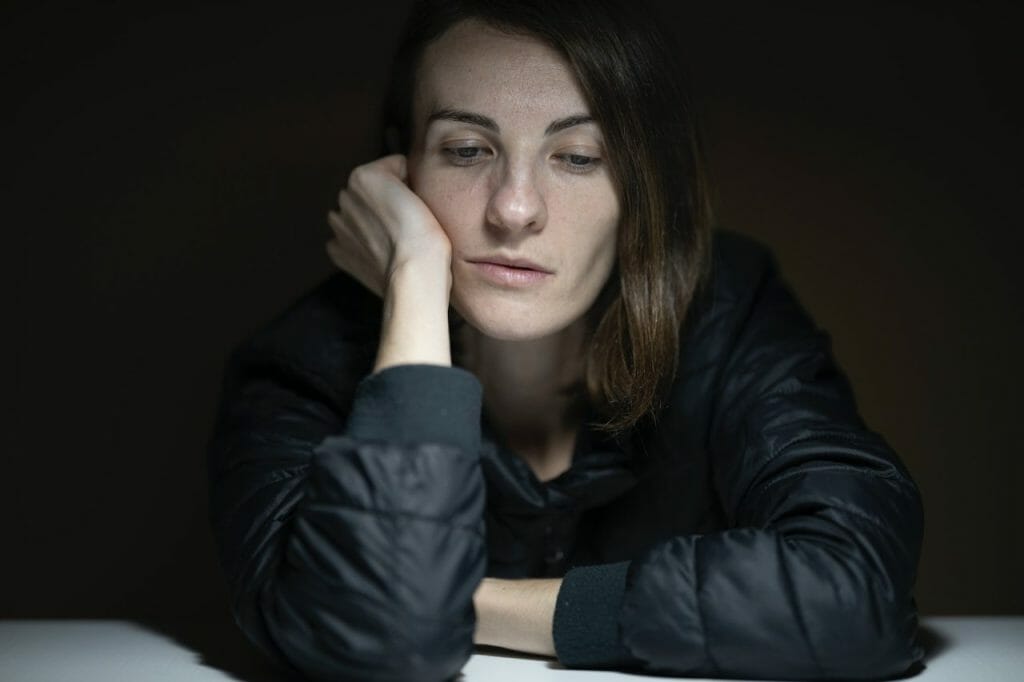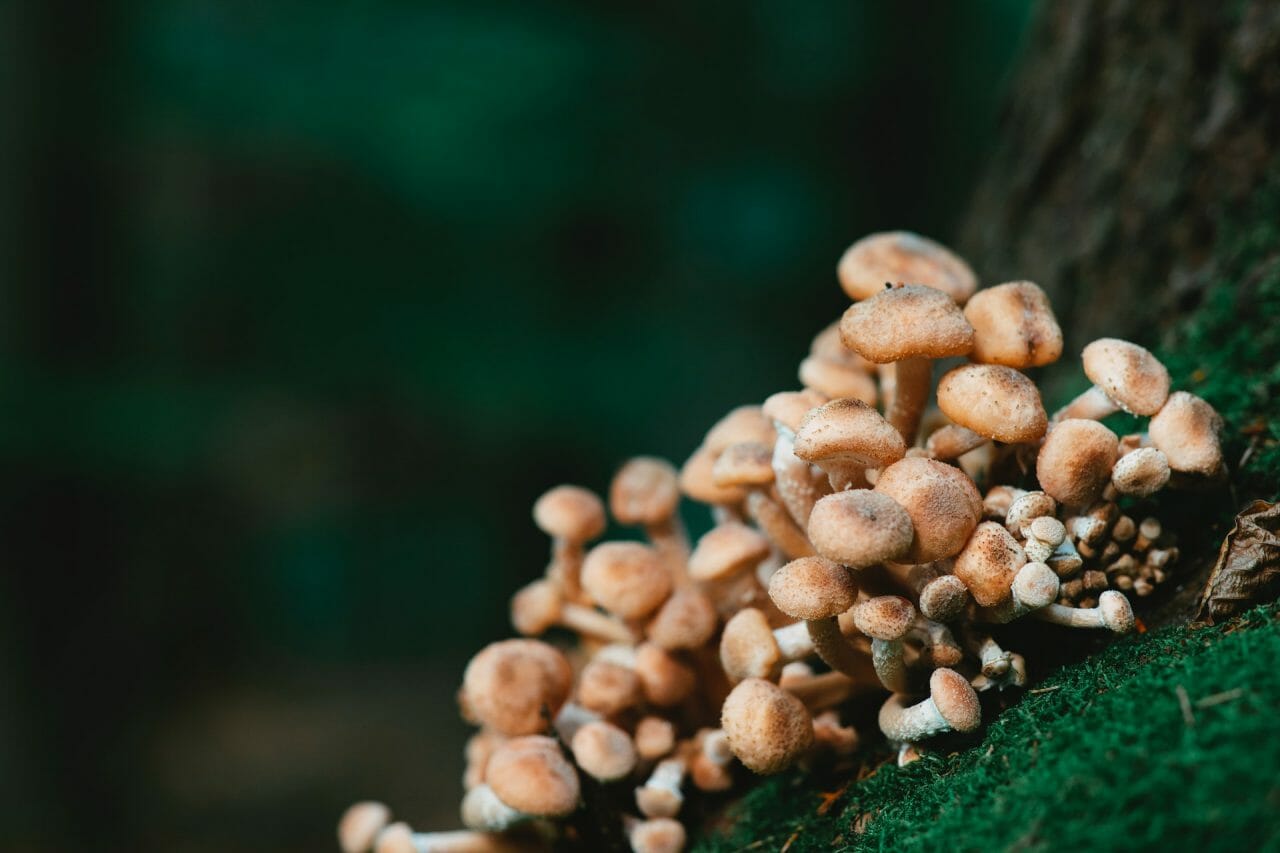According to the World Health Organization (WHO), depression is a worldwide concern, affecting over 264 million people globally.
Although conventional treatments can be beneficial, they often fail to adequately address depression’s multifaceted nature. This situation has sparked interest in alternative therapies, such as the use of psilocybin-containing mushrooms, available at a mushroom dispensary, in the treatment of depression.
Let’s delve into the world of mushroom dispensaries, their role in treating depression, and the compelling statistics that underscore their potential to revolutionize our approach to this pressing global mental health problem.
Key Insights:
- Mushroom dispensaries offer a novel depression treatment approach using psilocybin-rich mushrooms.
- Research suggests that psilocybin can result in significant, long-lasting reductions in depression symptoms.
- Psilocybin therapy is part of a new wave of mental health treatments.

Understanding Psilocybin and its Therapeutic Potential
Psilocybin is a natural compound found in specific mushroom species, often referred to as “magic mushrooms.” When consumed, the body converts psilocybin into psilocin, which interacts with the brain’s serotonin receptors. This interaction triggers significant alterations in perception, mood, and consciousness, typically associated with psilocybin consumption.
Research exploring psilocybin’s therapeutic potential for depression has yielded significant findings. Clinical trials and studies indicate that a single dose of psilocybin, administered with care, can result in considerable reductions in depressive symptoms, with patients reporting lasting, transformative effects on their mental health and overall well-being.
These findings have stimulated increased interest and investment in investigating psilocybin as a unique treatment option for depression, particularly for those individuals who have not responded well to traditional therapies.
Encouraging Results for Depression Treatment with Magic Mushrooms
Dispensaries
Psilocybin-containing mushrooms, commonly known as magic mushrooms, have been recognized for their potential in mitigating depression symptoms. Let’s explore different types of these mushrooms and their possible benefits for depression.
| Magic Mushroom Type | Characteristics | Potential Depression Benefits |
| Golden Teacher | A popular psilocybin mushroom known for its golden cap. | It may help to reduce symptoms of depression and improve emotional health. This strain might stimulate introspection and self-reflection, helping individuals gain new insights into their depression. Users often feel a sense of unity and interconnectedness, which can help alleviate feelings of loneliness often associated with depression. |
| Psilocybe Cubensis | One of the most common magic mushroom species. | Known to induce positive mood shifts and changes in life perspective. It may enhance emotional processing and support individuals in addressing the root causes of their depression. The altered consciousness it promotes might help users break free from rigid thought patterns and foster a more optimistic outlook. |
| B+ | Notable for its large, bulbous fruiting bodies. | It could trigger significant and sustained reduction in depressive symptoms. Users often report gaining a sense of clarity and understanding about their emotions and life circumstances. The therapeutic journey may aid in releasing suppressed emotions and trauma, thus providing relief from depression. |
| Liberty Cap | Small, cone-shaped mushrooms found in various regions. | Known for inducing intense emotional experiences that can positively impact depression. During Liberty Cap trips, users often report heightened sensitivity and empathy, which can facilitate emotional healing and connection. The immersive and profound nature of the psychedelic journey may help individuals understand the root of their depression. |
| Penis Envy | Identifiable by its unique, phallic-like shape. | Associated with deep insights and shifts in depressive thought patterns. Users often report experiencing ego dissolution, which allows them to confront their depression without the constraints of their usual identity. The intensity of the experience may precipitate therapeutic breakthroughs, leading to lasting improvements in mental health. |
| Blue Meanie | A potent strain identifiable by its blue tinge. hue. | It is believed to induce a soothing and relaxing state of mind, potentially alleviating symptoms of anxiety and depression. Several users have reported experiencing a sense of inner peace and emotional release during Blue Meanie sessions, which could potentially boost mental health. This strain, recognized for its gentle yet introspective attributes, may be particularly fitting for those seeking a less intense psychedelic experience for therapeutic benefits. |
The Role of Magic Mushroom Dispensaries in Depression Treatment
Magic mushroom dispensaries, or retail outlets, play a crucial role in depression treatment by offering a controlled and regulated environment for individuals seeking potential therapeutic solutions.
The Function of Health Canada
In Canada, Health Canada serves as the federal entity responsible for overseeing the safety, effectiveness, and quality of therapeutic products, such as the psilocybin found in magic mushrooms.
Approval of Therapeutic Products
Of late, Health Canada has granted exemptions and green lights for the use of psilocybin in select clinical and research situations for specific medical conditions, including depression. This policy shift indicates a growing recognition of the potential therapeutic uses of psilocybin.
Potential Therapeutic Uses
Magic mushroom outlets propose a potentially innovative and promising therapeutic approach for individuals grappling with depression. With the appropriate authorization and under certain circumstances, individuals can explore psilocybin therapy to alleviate depression symptoms.
A Supervised and Regulated Environment
Magic mushroom dispensaries provide a supervised and regulated environment for individuals pursuing psilocybin therapy, ensuring the process is conducted safely under the guidance of experienced professionals.
Compliance with Health Canada Regulations
Dispensaries must adhere to Health Canada’s rules and guidelines when distributing psilocybin-based products for therapeutic purposes. They play a crucial role in ensuring adherence and that therapy is conducted responsibly and ethically.
Navigating Psilocybin Therapy at a Mushroom Shop
Initiating psilocybin therapy at a mushroom shop could potentially be a transformative and beneficial journey. Nevertheless, it’s essential
It is essential to approach this decision with care and consideration. Following are some recommendations for navigating this process:
- In-depth Research: Begin with a thorough investigation of psilocybin therapy and the particular mushroom store you are considering visiting.
- Seek Professional Advice: Before contemplating psilocybin therapy, consult with a mental health professional or a therapist who specializes in psychedelic-assisted treatment. They can assess your suitability for such therapy and provide valuable guidance.
- Choose a Trustworthy Store: Look for customer reviews, endorsements, and evidence of compliance with local regulations.
- Understand the Process: Familiarize yourself with the entire therapy process, from the preparation stage to the psychedelic experience, and finally the integration phase after the session. Knowing what to expect can reduce anxiety and enhance therapeutic outcomes.
- Prepare Mentally and Emotionally: Prepare yourself mentally and emotionally for the experience. Set clear goals for your therapy session and be ready to confront any difficult emotions or thoughts that may arise.
- Verify a Safe Environment: Ensure that the mushroom store provides a secure and comfortable environment for your therapy session. This includes appropriate lighting, music, and the presence of trained facilitators to assist you if necessary.
- Follow Dosage Guidelines: Adhere to the dosage recommendations provided by the mushroom store or your healthcare provider. Avoid self-dosing or using unknown substances, as it can be dangerous.
Conclusion
Mushroom stores offering psilocybin therapy have emerged as a promising alternative for treating depression. Despite the diverse legal and regulatory landscape these stores operate in, increasing research and real-life testimonials highlight their potential in alleviating depressive symptoms and providing individuals with new perspectives on their mental health.
As the field of psychedelic-assisted therapy continues to grow, the role that mushroom stores play in transforming the treatment of depression provides hope for those seeking innovative mental health solutions.
Frequently Asked Questions
What’s the best way to find a reliable mushroom dispensary for depression treatment?
To find a reliable mushroom dispensary, it’s crucial to conduct extensive research. Look for stores that comply with local regulations and safety standards. Consult with professionals for advice and guidance.
Consult with healthcare professionals or individuals who have had positive outcomes with the therapy. Verify the dispensary’s credentials, including the proficiency of their facilitators and their commitment to ethical standards.
How long does the therapeutic effect of psilocybin therapy last in treating depression?
The therapeutic effect of psilocybin therapy varies among individuals. Some may experience immediate relief, while others may notice gradual improvements. Studies indicate that the benefits can last from several weeks to months after a single session. However, the duration of these effects can also be impacted by the integration and sustained support.
Is psilocybin therapy alone sufficient to treat depression, or does it need to be combined with other therapies?
Psilocybin therapy is commonly incorporated into a holistic depression treatment plan. It may be combined with conventional therapies such as psychotherapy, counselling, or medication to enhance its efficacy. The choice of treatment modalities should be customized to individual needs and based on the recommendations of healthcare professionals.
What other magic mushroom products can be used for depression treatment?
In addition to standard magic mushrooms, other magic mushroom products for treating depression include psilocybin microdosing capsules, psilocybin-infused edibles such as chocolates or gummies, liquid extracts or tinctures, and psilocybin nasal sprays. These alternative psilocybin delivery methods provide various dosing and administration options, including precise microdosing for subtle mood enhancement.
Related Article:





